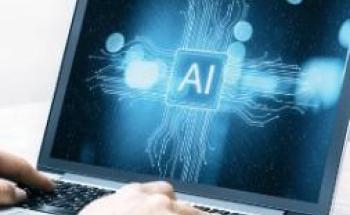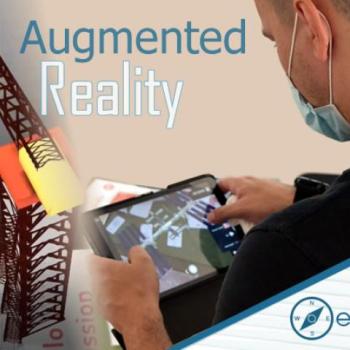
Building Tomorrow's Innovators: Integrating Educational Robotics into the Classroom
This training is tailored for school teachers seeking to enhance their expertise in introducing educational robotics to students.
From computational thinking to robot creation, participants delve into theoretical insights and practical exercises. Explore Arduino, Micro-bit, Scratch, and more for an innovative classroom approach.
Description
Our training program is designed for school teachers who want to enhance their ability to
introduce educational robotics into their classrooms. It focuses on developing computational thinking and coding skills while providing in-depth knowledge of key robotics elements.
Participants will gain hands-on experience with platforms like Arduino, Micro-bit, and Scratch and learn how to implement these tools in their teaching practices effectively. The course includes theoretical insights, simulations, and practical exercises to help educators integrate robotics activities, from unplugged exercises to actual robot creation.
The training aligns with educational objectives to foster a scientific-technological culture and promote conscious behaviour among students. It encourages personalized learning processes and multidisciplinary approaches, empowering students to become active learners and creators of their knowledge.
Learning objectives
- 1.Computational Thinking Mastery
- Engage in unplugged activities to develop computational thinking skills, understanding its importance in cognitive processes and problem-solving.
- 2. Coding and Programming Proficiency
- Acquire coding and programming skills through various software applications, improving proficiency in coding languages and algorithmic procedures.
- 3. Integrating Robotic Elements for Scientific Learning
- Utilize robotic tools like Micro-bit and Arduino IDE to enhance learning in scientific subjects, promoting a multidisciplinary approach to education.
- 4. Personalized Learning Processes
- Equip educators with strategies to tailor educational robotics activities to individual student needs, fostering personalized learning experiences.
- 5. Pedagogical Overview and Knowledge Empowerment
- Deepen understanding of the pedagogical implications of teaching robotics, and empower educators to facilitate knowledge-building and engage students in active learning effectively.
Methodology & assessment
Before the mobility, the participant will fill out an online questionnaire prepared by the hosting organisation to define the actual training needs.
During the training, the participant will be monitored through peer reviews, simulation,
completed tasks and projects, and consultations with the mentor/teaching staff at the
hosting organisation.
Evaluation Format:
It includes knowledge assessments during the training through quizzes, practical exercises, collaborative projects, active in-class participation and peer feedback sessions. The evaluation format measures participants' readiness to integrate educational robotics effectively in the classroom.
Final Assessment
The participants are expected to design and realise a robot with motors and sensors. The robot's handling will occur through commands formulated through algorithms and connections to the PC via Bluetooth or WiFi.
In addition, a multiple-choice test on the topics addressed is administered.
Materials, digital tools & other learning resources
This course equips school teachers with various materials, including guides, case studies, and practical examples, to seamlessly integrate educational robotics into their teaching. Participants will explore tools like Arduino, Micro:bit, and Scratch to enhance computational thinking and hands-on robot creation. With a blend of theoretical insights and practical exercises, all resources are designed to be accessible and actionable, empowering educators to implement innovative approaches.
Certification details
The Hosting Organisation implements the recognition procedure for delivered and achieved training content. Successfully overcame the evaluation procedure before, during, and at the end of the training, the participants will receive an attendance certificate including detailed information about the course, e.g. title, program, and schedule, by the hosting provider. Besides, a Europass Mobility Certificate is added at the request of the sending organisation.
Pricing, packages and other information
-
Price:400Euro
-
Course package content:
The course package includes:
1. Training materials and administrative tasks,
2. Coffee breaks,
3. Special social events (e.g., guided tours).
5. Assurance,
6. Certification.
Online meetings can be organized on request to prepare the learning agreement and to fix the training planning.
Please note that the package does not include additional costs such as accommodation, meals, or travel expenses.
-
Additional information:Description of the services and activities included in the course package (such as accommodation, meals, transport) or available at extra cost.
-
Cancellation & changes:
Participants may request changes to their enrolment, such as switching to a different session, up to 10 days before the course start date, subject to availability. Cancellations made at least 14 days before the course start date will be eligible for a full refund. Cancellations made within 14 days but not less than 48 hours before the start date will receive a 50% refund. Cancellations made less than 48 hours before the course start date will not be eligible for a refund.
-
Additional information:The options and conditions for change and cancellation, and the policy in case of unforeseen circumstances (force majeure).
Additional information
-
Language:English
-
Target audience ISCED:Primary education (ISCED 1)Lower secondary education (ISCED 2)Upper secondary education (ISCED 3)
-
Target audience type:TeacherStudent TeacherHead Teacher / Principal
-
Learning time:20-25 hours
Upcoming sessions
Past sessions
More courses by this organiser

AI-Enhanced Learning: Strategies for Modern Educators

Empowering students' motivation and learning with augmented reality


